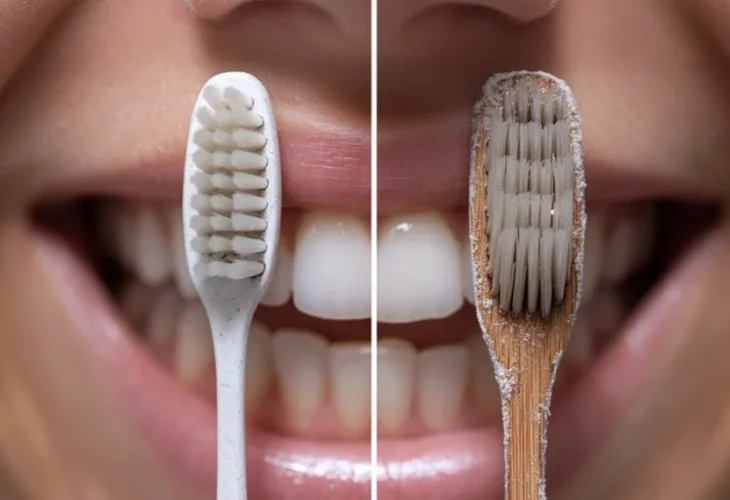Health and Nutrition
3 Hidden Health Hazards in Your Bathroom, According to a Doctor
Common hygiene mistakes with toothbrushes, razors, and shampoo that could lead to infections, inflammation, and more.

Dr. Saurabh Sethi, a senior gastroenterologist at a hospital in California, shared a viral post on social media that has sparked widespread attention. In it, he warns about three everyday items in our bathrooms that could pose serious health risks- and one of them is your toothbrush.
According to Dr. Sethi, most people are unaware of how risky it can be to keep using an old toothbrush. "Around 75% of the world’s population continues using their toothbrush far beyond the recommended lifespan," he explains. That recommended period is just three to four months.
"This is a hidden and dangerous hazard," he writes. "A worn-out toothbrush not only fails to clean your teeth properly, but it can also become a breeding ground for harmful bacteria- the kind you definitely don’t want in your mouth. These bacteria can even enter the bloodstream and cause serious health problems."
Dr. Sethi especially urges parents to take note, since children often need to replace their toothbrushes more frequently, whether due to aggressive brushing or simply playing with the brush.
The second item on his list are dull razor blades. Using an old or blunt razor can cause skin irritation that’s up to ten times worse than normal. It may also lead to painful issues like razor burn, small cuts prone to infection, and ingrown hairs.
An ingrown hair occurs when a hair grows back into the skin instead of outward. This is common after shaving, waxing, or hair removal treatments, especially in areas with coarse or curly hair like the beard, legs, or underarms. The hair curls back under the skin, triggering an inflammatory response as the body treats it like a foreign invader.
Symptoms of an ingrown hair may include:
A small red bump resembling a pimple
Itching, burning, or tenderness
Localized pain
While usually harmless and self-resolving, some cases can become infected, fill with pus, and even leave a scar. Using a clean, sharp blade is therefore essential.
The third risky item is shampoo bottles that have been open for too long, and bath sponges that are almost never replaced.
“Good hygiene isn’t just about soap and water- it’s also about the condition of the tools we use,” Dr. Sethi concludes.

